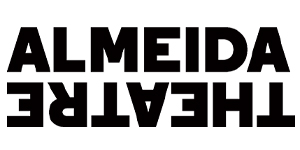Artists in Quarantine: Marc Tritschler, Creative Director of Music, NT
1 June 2020
The new blog series throws the spotlight on Genesis artists in lockdown: directors, writers, actors, musicians and artists, who have had to figure out ways to stay creative and practise their art in a completely new way, sometimes in extremely challenging circumstances.
The Foundation wants to give the Genesis network an opportunity to showcase what they have been up to, to share the challenges they face and to show, with the intention of inspiring others, how they find resilience and creativity in lockdown.
Marc Tritschler
Marc Tritschler is Creative Director of Music at the National Theatre. He is a pianist, music director, music supervisor, arranger and composer of music for the theatre, with recent credits including A Number at The Bridge, The Prime of Miss Jean Brodie at the Donmar Warehouse, Macbeth at the National Theatre and Chekhov’s Uncle Vanya at HOME in Manchester. Before moving to the UK in 2016, Marc held a permanent conducting position as Deputy Music Director at the world-renowned revue theatre Friedrichstadt-Palast in Berlin and was the Music Director for the German premiere of War Horse at Theater des Westens.
What’s your current confinement situation, who’s on your quaranteam?
I’m working from home with my wife and 21 month old toddler, who absolutely loves lockdown.
Are you able to work, are you inspired by what we are going through or do you find it challenging?
Besides the obvious challenges of a family setup, I feel quite focussed and creative. However, the lack of clarity about the future of the cultural sector is increasingly intimidating.
Do you have a routine to stay creative?
Our strict routine keeps us and the baby boy sane. Creatively, I find a repeated timeframe very helpful.
Do you think what you’re going through will impact your practice long term?
I would hope there is a sense of returning to the core of our practice, as this moment opens room for thoughts that are hard to follow through normally. This could bring out the best of us – the danger being that all soul and heart could go overboard with the commercial pressure that we will face very soon. If we want to preserve theatre as an art form, we will have to make a very good case for it, so the pressure’s on and hopefully this will lead to excellence and focus.
Is there any advice you would like to share to fellow artists, audiences or organisations on how to find resilience?
Using this period as a meditation on the essence of your art form must be a good thing and ideally also a strengthening process. Whatever you discover will probably be connected to the reason that you started in the first place, and re-living that initial impulse might help find ways forward for your creativity.
What are your hopes for the future?
I hope we find a way of using this crisis as a turning point. Where we are now is testament to the fact that our system doesn’t really work anymore. We all know it really, but are too stuck in our routine and comfort to do anything substantial about it. It’s interesting to see how lots of things have become possible in a very short period of time. What if we applied the same kind of radical thinking on the other side of this? I hope we won’t forget too quickly.
What should we be reminded of?
Theatre – all performing arts really – needs us to breathe the same air together and to listen to each other. It calls us out of the comfort of our homes and forces us to expose ourselves to an imaginary world that might well expand our horizon above the daily business of our existence. Crucially, a live performance can’t be paused, it requires a good amount of bravery therefore from everyone as it’s out of our control in many ways. Every day that passes with arts venues being shut all over the globe should be a reminder of the power and magic of a live performance.







